10 outstanding results
Deploying the Project on teaching and learning foreign languages in the national education system for the period 2017-2025, Permanent Deputy Minister Pham Ngoc Thuong emphasized 10 outstanding results regarding: objectives; facilities; programs and materials; qualifications of teachers; opportunities to access foreign languages; international cooperation; method innovation; teacher training; foreign language environment and foreign language learning movement.
Specifically, all targets were achieved and exceeded compared to the Project; the foreign language teaching and learning system was enhanced and gradually modernized; the program and materials were rich, diverse, and approached international standards.
The qualifications of the teaching staff have been significantly improved. Currently, 88% of general English teachers meet the foreign language proficiency standards according to the 2018 General Education Program (an increase of 22% compared to the 2017-2018 school year); at colleges and universities under the Ministry of Education and Training , 98% of English lecturers meet the standards of level 5 or higher (an increase of 7.6% compared to the 2023-2024 school year).
Students have access to foreign languages more and more widely. 63/63 provinces and cities have implemented English familiarization programs for preschool children (28.5% of children participate); 99.8% of students from primary to high school study English programs; 41 provinces and cities organize teaching of other foreign languages for more than 41,000 students.
International cooperation is diverse and effective, contributing to quality improvement. Teaching, testing and assessment are continuously improved. Teachers of foreign languages, especially English, are focused on training and quality improvement.
The foreign language environment is expanded, diversified, and enriched with many solutions. Regarding the learning movement, the need and trend of learning foreign languages are formed more widely and strongly than in the previous period.
The Deputy Minister respectfully acknowledged, commended and highly appreciated the efforts of the National Foreign Language Project Management Board; ministries, branches, localities, Departments of Education and Training, educational institutions, especially the teaching staff who have actively and proactively implemented the Project.
The Deputy Minister said that at this Conference, the Ministry of Education and Training awarded 8 groups and 10 individuals. Compared to the merits and contributions of teachers and the number of units, this number is still very modest. Due to the short time, the synthesis work has not been complete, the awards have not fully reflected the common efforts.
The Deputy Minister requested the Departments of Education and Training, educational institutions, ministries and branches to continue to advise competent authorities to recognize and reward more promptly collectives and individuals with many contributions. This will be a source of encouragement, creating more motivation for the whole sector to continue to strive in the coming time.

Frankly acknowledge limitations and challenges
Besides the achieved results, the Deputy Minister also pointed out some limitations in teaching and learning foreign languages as follows:
Firstly, the foreign language proficiency of teachers and students, especially English according to output standards, is still not as expected and does not fully meet requirements.
Second, in recent times, teaching has mainly focused on “learning foreign languages” without really paying attention to “learning languages”. Although many students have achieved international certificates or prescribed standards, their ability to use a foreign language as a second language in study, work and daily life is still limited.
Third, through monitoring and evaluation, it is shown that the impact of the Project on preschool and general education is not really proportional to that of university and vocational education. This is a gap that needs more attention in the coming time.
Fourth, policies for foreign language teachers in general, English teachers and teachers teaching other science subjects in English have not received due attention and are not really suitable.
Finally, socialization in the field of foreign language teaching and learning needs to be further promoted to create more resources and motivation for development.
The Deputy Minister emphasized that education in general and foreign language teaching in particular have never had as many advantages as they do today. However, there are also challenges.
With a population of over 100 million people, compared to countries with only a few million or tens of millions of people, the challenge for the teaching staff and the entire education sector is enormous. The wide geographical area and regional differences also require narrowing the gap and ensuring fairness in access to foreign languages. In addition, traditional teaching methods and foreign language awareness have not kept up with new requirements. For example, the notion that only when English becomes a compulsory subject will teaching and learning be focused on is an approach that was only suitable in the previous stage, but no longer meets the current trend.
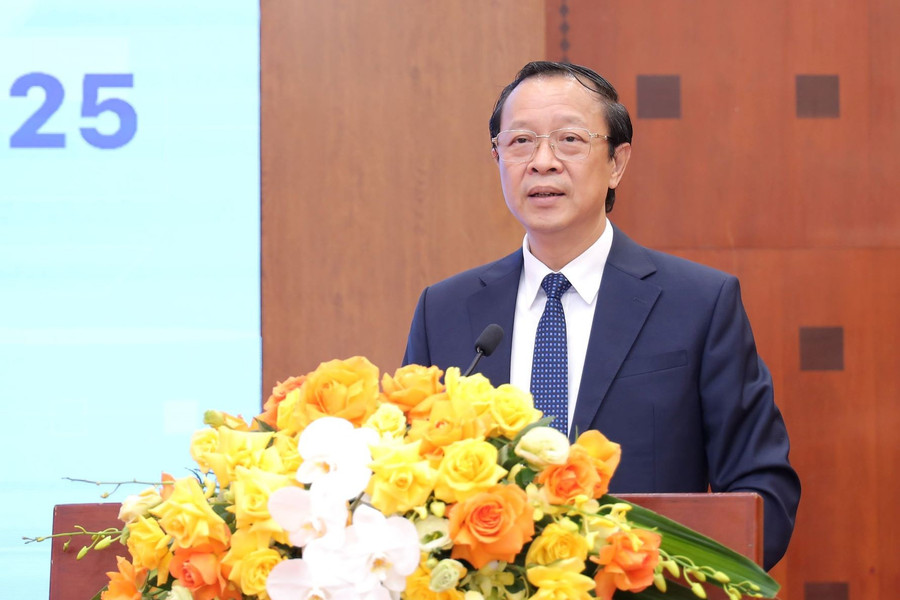
Design a new Project with a breakthrough spirit, closely following the spirit of Resolution No. 71-NQ/TW
In the coming time, the Deputy Minister proposed to focus on implementing the following tasks:
First of all, it is necessary to maximize the results achieved by the Project. The summary does not mean the end, but it is important to know how to preserve, exploit and use the products of the Project effectively. The Project Management Board needs to preside over and coordinate with specialized units to advise the Ministry, synthesize the results and build a shared mechanism, so that the value of the Project continues to spread.
Second, educational institutions, Departments of Education and Training, and ministries and branches - based on their functions and tasks - advise unit leaders to summarize and evaluate the implementation of the program in a serious, scientific, concise but effective manner, thereby creating a practical movement. Thereby, looking back at the direction and organization in the past, drawing experience and determining the appropriate direction for the new period.
On this occasion, the Deputy Minister also emphasized some lessons learned after the implementation of the Foreign Language Teaching and Learning Project.
The first lesson is about awareness and thinking. Resolution No. 71-NQ/TW has determined that "breakthrough" must start from innovation in thinking, awareness and institutions. Therefore, in the process of summarizing the Foreign Language Project, it is necessary to pay deep attention to this issue. A core requirement is to change the mindset from "studying for exams" to "studying for practical needs". Foreign languages must become an intrinsic need, a driving force for integration, instead of just being associated with exams. In addition, it is necessary to soon have appropriate mechanisms and policies for the foreign language teaching staff, to ensure that teachers are confident in their commitment and develop their capacity in the new context.
Lessons related to project development must be practical, effective and feasible; lessons on vision and responsibility of the leader; on testing output standards, linked to international standards and quality assessment; lessons on team building and building a language-using environment... were also emphasized by the Deputy Minister.
Third, the Project Management Board continues to preside over the development of the National Foreign Language Teaching and Learning Project for the period 2026-2030, with a vision to 2045. This will be a new project, in addition to its own orientation on making English a second language, and must be designed with a breakthrough spirit, closely following the spirit of Resolution 71.
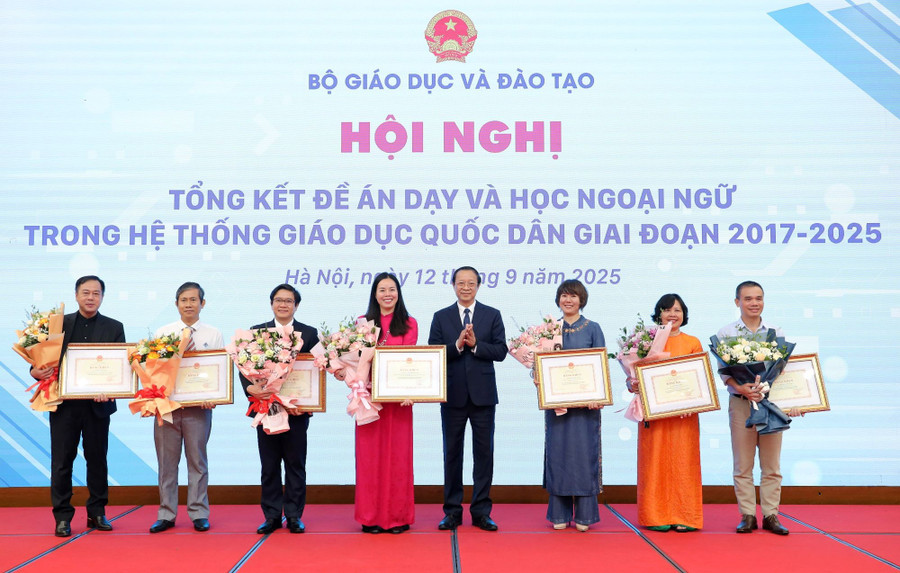
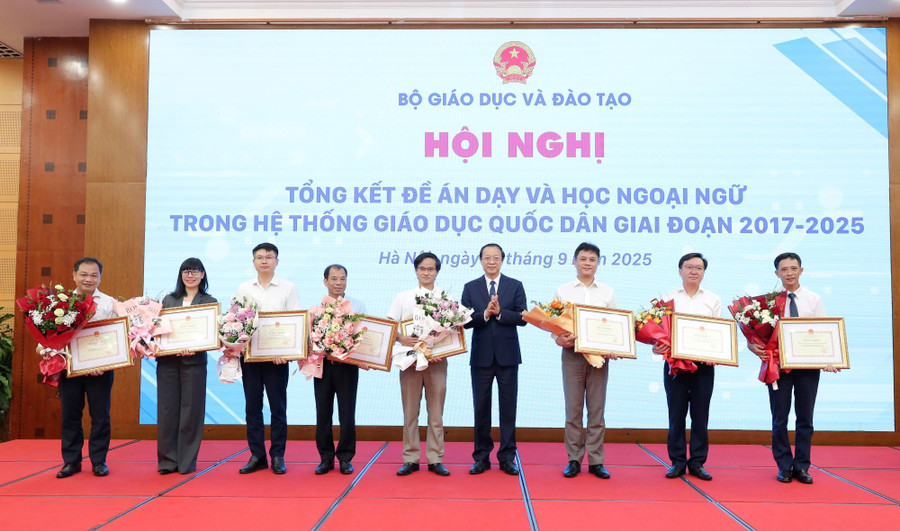
Fourth, it is necessary to study and develop a working regime for lecturers and teachers teaching other subjects in foreign languages. This is a very important issue.
“In reality, for a long time, we have lacked teachers of English, foreign languages, information technology as well as some specific subjects such as fine arts and music. The important reason is that English and information technology teachers have many opportunities to change careers, so after training, many do not enter the school system. Therefore, the policy does not stop at attracting but more importantly, retaining the team. This is an urgent requirement, and we need to soon have a legal, political and scientific basis to propose and build,” the Deputy Minister shared.
In addition, it is necessary to continue to improve related regulations, such as the teacher training mechanism, the bidding regime for training programs, or the issue of work permits for foreign teachers. These practical problems require timely consultation for more appropriate policies, creating favorable conditions for foreign language teachers and teaching in foreign languages.
The important thing is to create a movement, form a trend and stimulate the demand for learning foreign languages. Administrative solutions only work to a certain extent and are not enough to create sustainable changes.
In the context of a flat world, if we lack English, information technology and digital transformation, we will narrow ourselves. Then the "safe zone" will only stop at the village or local level, instead of expanding globally. Foreign languages are the "passport" to step out into the world. Therefore, every manager and teacher needs to clearly understand this, considering foreign language and information technology as essential provisions for integration.
Permanent Deputy Minister Pham Ngoc Thuong
Source: https://giaoducthoidai.vn/giai-phap-tao-chuyen-bien-ben-vung-trong-day-va-hoc-ngoai-ngu-post748178.html


![[Photo] The road connecting Dong Nai with Ho Chi Minh City is still unfinished after 5 years of construction.](https://vphoto.vietnam.vn/thumb/1200x675/vietnam/resource/IMAGE/2025/11/04/1762241675985_ndo_br_dji-20251104104418-0635-d-resize-1295-jpg.webp)

![[Photo] Ho Chi Minh City Youth Take Action for a Cleaner Environment](https://vphoto.vietnam.vn/thumb/1200x675/vietnam/resource/IMAGE/2025/11/04/1762233574890_550816358-1108586934787014-6430522970717297480-n-1-jpg.webp)
![[Photo] Panorama of the Patriotic Emulation Congress of Nhan Dan Newspaper for the period 2025-2030](https://vphoto.vietnam.vn/thumb/1200x675/vietnam/resource/IMAGE/2025/11/04/1762252775462_ndo_br_dhthiduayeuncbaond-6125-jpg.webp)

![[Photo] Ca Mau "struggling" to cope with the highest tide of the year, forecast to exceed alert level 3](https://vphoto.vietnam.vn/thumb/1200x675/vietnam/resource/IMAGE/2025/11/04/1762235371445_ndo_br_trieu-cuong-2-6486-jpg.webp)



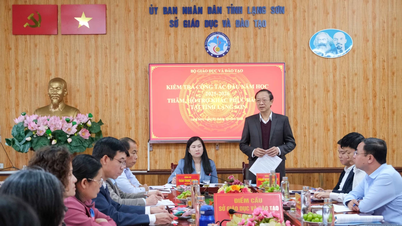
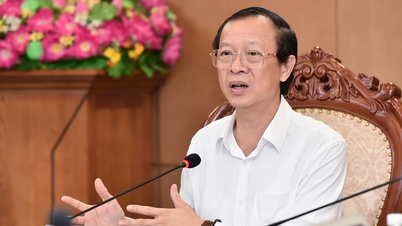
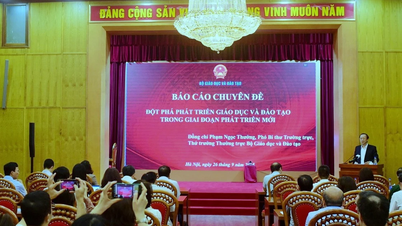
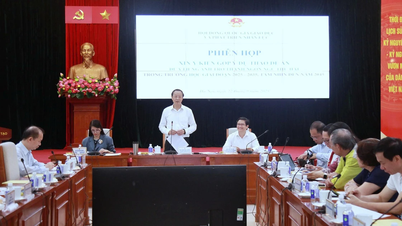




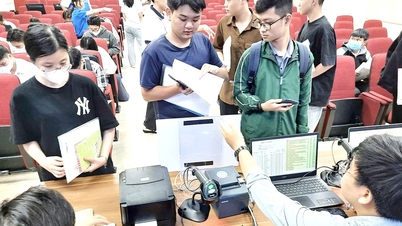
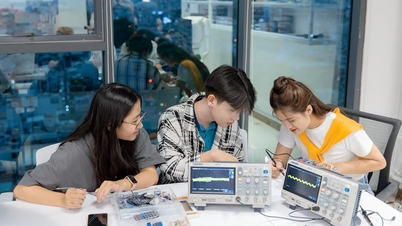







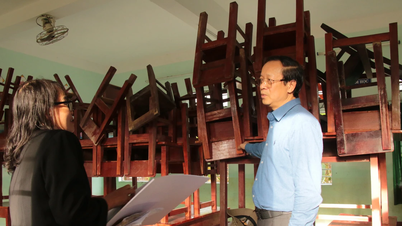


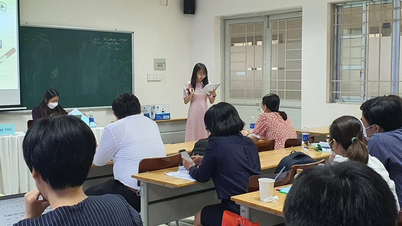
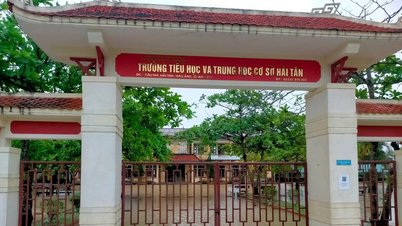








































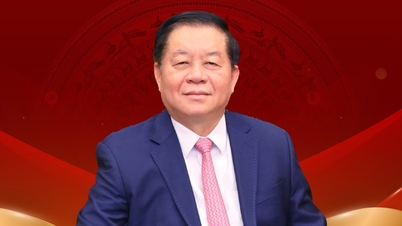
































Comment (0)